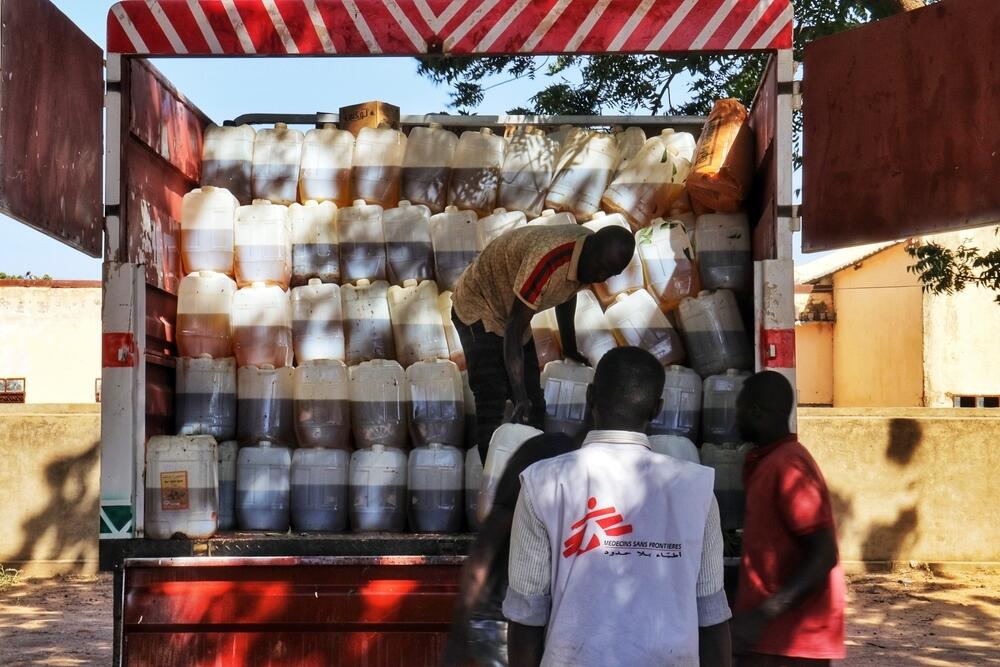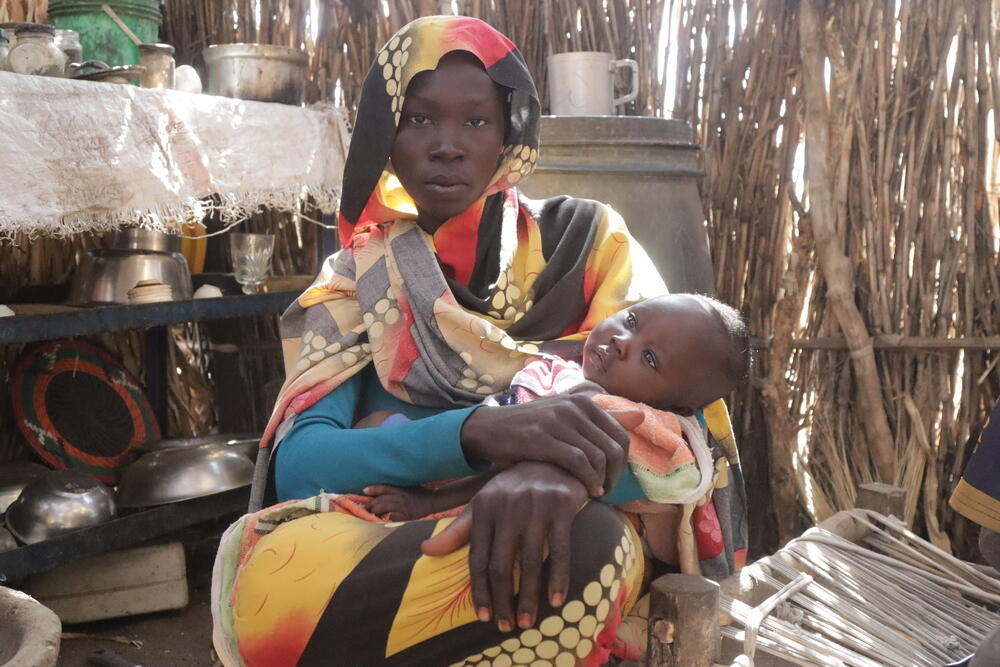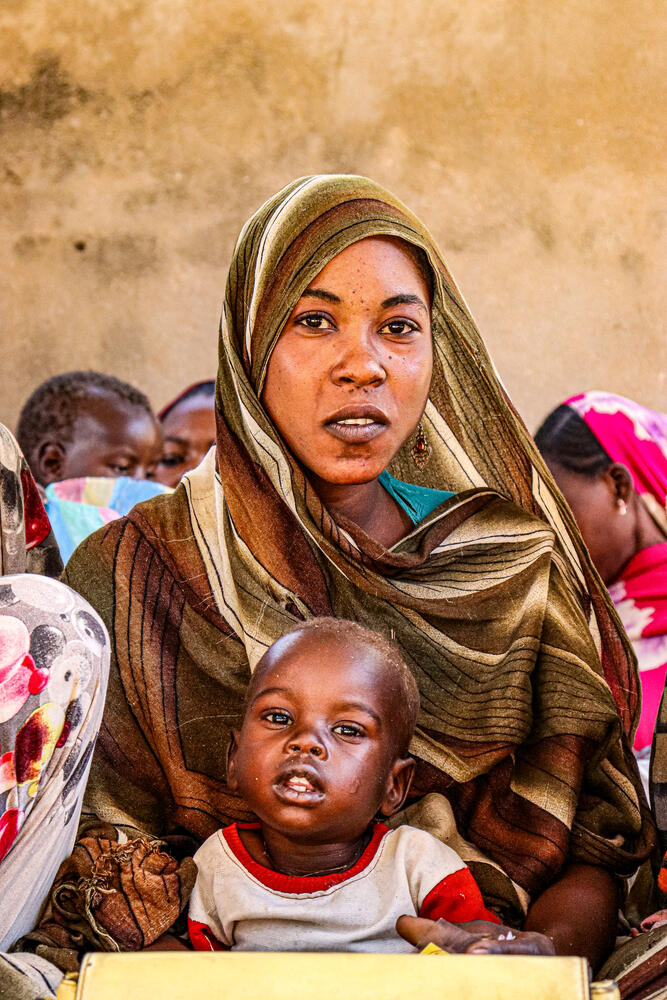The food distribution programme fighting Sudan’s malnutrition crisis
Médecins Sans Frontières / Doctors Without Borders (MSF) is launching a programme providing food for 30,000 people in South Darfur, Sudan, amid a malnutrition crisis.
Half of Sudan’s 24.6 million population faces high levels of acute food insecurity. Of them, 8.5 million people face an emergency or famine-like situation according to the latest Integrated Food Security Phase Classification (IPC) report, a standardised scale that indicates the severity of a crisis.
In South Darfur in Sudan very few people are spared from the risk of starvation and death that malnutrition poses. As the war continues, an insufficient response from international organisations including UN agencies has left people without enough food to eat, or adequate medical services to prevent avoidable deaths.
In October 2024, 23 percent of children under five screened at MSF-supported facilities in Nyala, South Darfur’s capital, and nearby locations were suffering from severe acute malnutrition. In two MSF-supported facilities, 26 percent of the pregnant and breastfeeding women seeking care were acutely malnourished.
To help alleviate the situation, in December MSF teams began a targeted food distribution in the locations where we work in South Darfur.
Patients already being treated in MSF malnutrition programmes or people in MSF facilities including pregnant and lactating women, and children with malaria, diarrhoea or respiratory illness who also have malnutrition received food for them and their families for two months.
Three Sudanese women who, along with their babies, were treated by MSF teams share their stories...
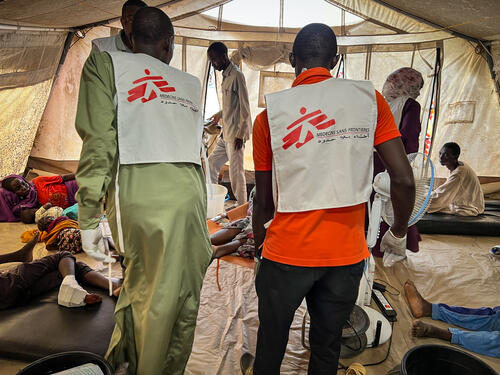
Our work saves lives
MSF teams are distributing food for 30,000 people in South Darfur for two months
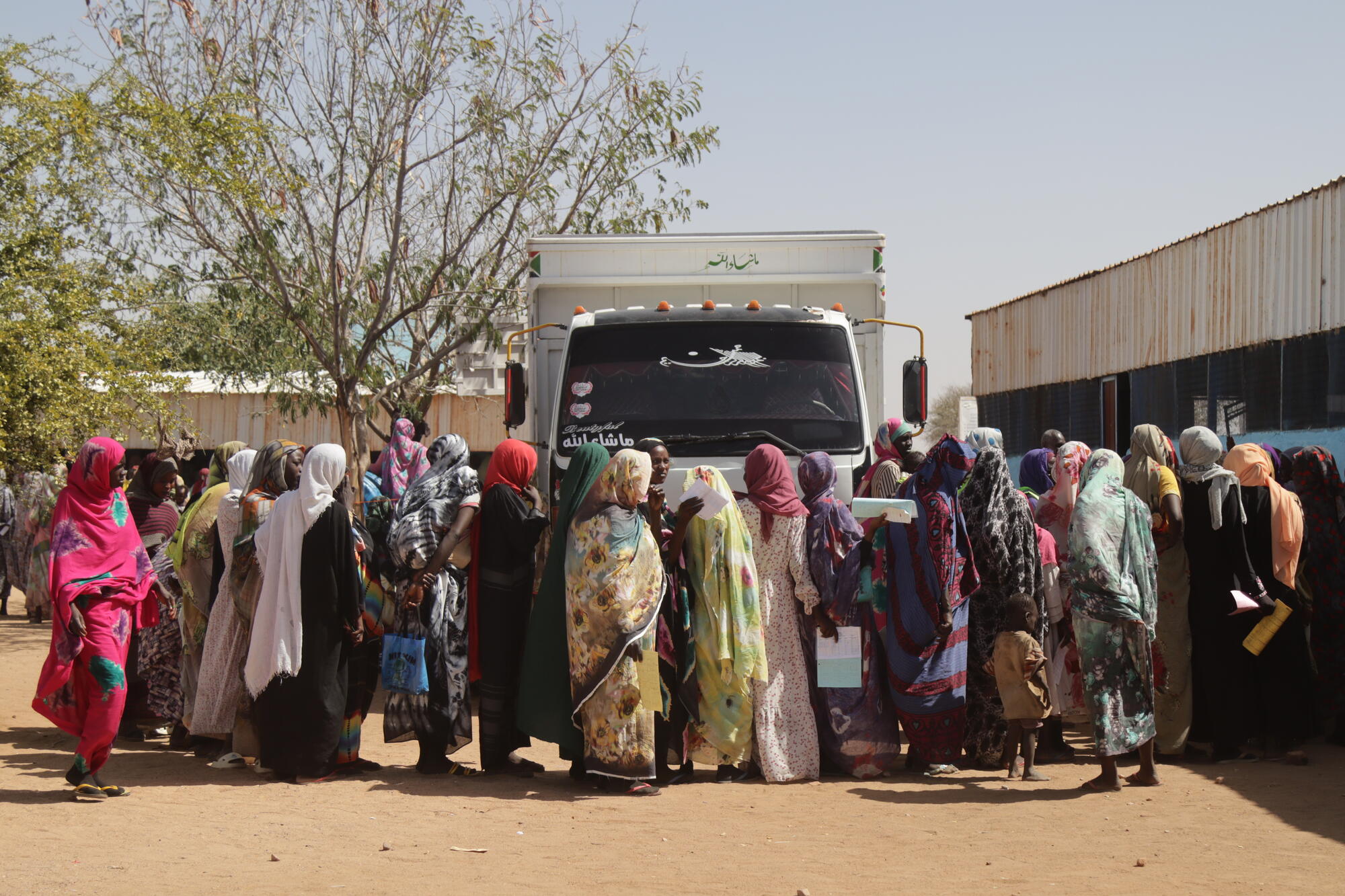
Zahra Abdullah
25 years old
Inside her kitchen after receiving her food basket
“My name is Zahra Abdullah, I am 25 years old. I live in the Al-Salam camp for displaced people in South Darfur State, in the city of Nyala.
This is not the first war I have experienced, but it is definitely the most devastating to my life. I am here because of the war in Darfur, which uprooted us from our homes and forced us to seek refuge far from the destruction.
Life in this camp is extremely difficult. The living conditions here are harsh, and everything is a daily struggle. The aid we receive has somewhat improved our situation. At least now, we finally have a meal in the morning. But even so, the suffering never ends.
It starts with finding clean water to drink, continues with trying to provide enough food, and ends with finding a place to sleep that protects our bodies from the scorching sun and the cold nights.
Sometimes I sit alone and think: Is this the life I will live forever? It is heartbreaking to spend our whole lives dependent on aid. I am grateful to everyone who helps us, but as a mother, I want something better for my children. I want them to live a dignified life, to have a home where they feel safe, and a school where they can learn and dream.
I ask myself daily: Will my children live the same life? Will they grow up fighting the same hardships I endure now? I hope to leave this place someday. I hope to provide a better life for them, a life far from camps and aid, a life filled with dignity and opportunity.
Despite everything, my hope remains alive. I dream of peace—not just for myself, but for everyone who has suffered because of this war.”
Rehab Musa
19 years old
Attending her second follow-up appointment with a doctor at the Kalma Camp health centre run by MSF
“My name is Rehab Musa, and I am 19 years old. I live here in Kalma Camp for displaced people. I was born in this camp, and now I have given birth to my first child, yet we still live the life of the displaced. I am a mother to a little boy, Ayman Ali, who is nine months old.
I gave birth under extremely difficult circumstances, and those days were some of the hardest in my life. I thank God that Ayman is now healthy and well, thanks to the care we received here.
I suffered from complications after giving birth and was sick for a long time, but thanks to the healthcare I received, my condition improved significantly.
Now, all I want is for my son to grow up in a safe environment, with good health and a better future. Recently, I enrolled in the MSF nutrition programme for pregnant and breastfeeding mothers.
This programme is a lifeline for me and other mothers, as it provides us with some of the essential food supplies we desperately need. I feel a true sense of relief knowing that my son will get the nutrition he needs to grow properly.
Despite all the suffering we endure here, I hold on to the hope that this war will end one day and that we will be able to return to our homes and normal lives. All I dream of is a bright future for my son, Ayman—a future free from pain and suffering.”
Kawthat Mohammed
28 years old
Waiting to receive her food basket
"My name is Kawthar Mohammed, and I am 28 years old. I am a mother to a little boy named Yazan, who is two and a half years old. We live in Beleil locality, in South Darfur State.
Some time ago, I noticed that Yazan was constantly crying and quickly losing weight. At that time, we were out farming, and there was no health centre nearby.
The war was the biggest obstacle—constant fighting made accessing healthcare services nearly impossible.
After three months, we returned to the locality and came to the health centre run by MSF. Reaching these centres wasn’t easy; we often had to navigate unsafe roads and pass through checkpoints where you couldn’t be sure if you would be welcomed or not.
When we arrived at the centre, the place was crowded with mothers like me, holding weak children, most of whom were suffering from malnutrition due to the difficult circumstances we face. Yazan was diagnosed with severe malnutrition. He was provided with proper nutritional support, and his health condition has been monitored daily.
Here, it’s not just about treatment but also about humanity—compassionate care and attention to the smallest details.
We also received food rations provided by MSF’s programs for pregnant women and malnourished children. These include fortified flour and special milk. However, the challenge lies in transporting these supplies back to our home, as the road is often unsafe and fraught with risks.
What complicates our lives further is the lack of clean water. We need it to prepare safe food. Communities here share scarce resources, and conflicts often arise over even the simplest necessities of life.
Despite these hardships, I don’t lose hope. I dream of a safe future for Yazan, where he can grow up in peace and live a dignified life."
For millions of people like Zahra, Rehab and Kawthar, the time is now to act to prevent the situation from becoming ever more dire. MSF teams will continue to do what they can, but the scale is well beyond the organisation’s capacity to respond.
We need to see a massive response now to prevent more death and starvation; timeliness is a matter of survival, not political expediency.
MSF and the crisis in Sudan
On Saturday 15 April 2023, a brutal civil war broke out across Sudan with a wave of gunfire, shelling and airstrikes.
The violence between the Sudanese Armed Forces (SAF) and the Rapid Support Forces (RSF) has trapped millions of people in the middle of an unexpected conflict. Hundreds of thousands have been forced to flee their homes while access to essential services such as healthcare has become increasingly difficult.
Médecins Sans Frontières / Doctors Without Borders (MSF) teams already working in Sudan have been responding to the crisis since its first moments.
